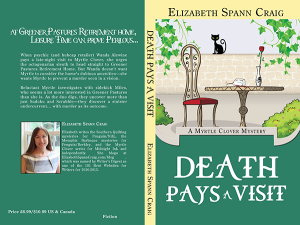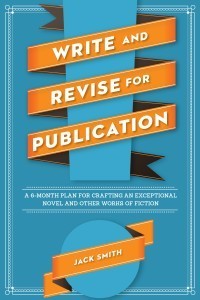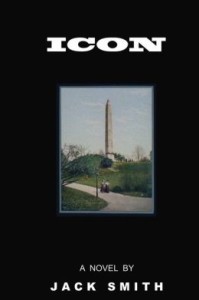Riley Adams's Blog, page 123
February 5, 2015
Yanking Readers Out of a Story
By Elizabeth S. Craig, @elizabethscraig
I can be a pretty annoying person to watch television or movies with. Maybe most writers are. Plot holes and plot devices trip me up in bad stories and I’m too analytical of what works in good stories. This may be why I don’t get a lot of invitations to hang out and watch TV with members of my family.
Regardless of my general unpopularity as a movie-watching companion, my husband and I were watching the movie Lucy on Amazon Prime last weekend. It was, actually, a good film and one of the few genres that overlap enough so that my husband and I can both enjoy it. But there was one part (okay, probably three parts, actually. But I won’t give spoilers) where my husband said, “But why are they doing that? That wouldn’t happen—there would be cops all over the place.” And I said, maybe a bit impatiently, “Because it has to happen. For the story.” And I quickly explained why.
Once I pointed out the strings and the puppet master, we were both watching the movie from a different perspective.
It’s those types of moments when I’m reading a book or watching TV or movies that I try to avoid as a writer.
Here are some things that jerk me out of a story as a reader that I try to avoid as a writer:
Author intrusion: fitting in a sermon on one topic or another…sometimes political, sometimes not.
The need for too much suspension of disbelief. Author John Scalzi calls this “the flying snowman.”
Head-hopping POVs. Confusion can really pull us out of a story.
Too many narrators. See confusion, above.
Plot devices. Deus ex machina.
Smart characters, foolish choices. Characters investigating dark basements alone and unarmed when there are monsters in the neighborhood.
Breaking the fourth wall in the story.
Boring passages with no direct impact on the plot. Melville’s chapters on harpoons.
Unnatural dialogue.
Sometimes too many filtering words. Maybe only other writers will notice this. Deep POV can help a reader feel as if they’re in the characters’ skin.
Pace-slowing detail for objects, settings, or characters that don’t help create or reinforce the story world.
Research presented in unnatural ways in the narrative.
These are some of mine…and different ones annoy me/pull me out of a story to different degrees. Do any of these bother you? What would make it on your list? And…how are you when watching TV and movies with others?
Image: Death to the Stock Photo
The post Yanking Readers Out of a Story appeared first on Elizabeth Spann Craig.
February 1, 2015
Reader Privacy vs. Data Collection and Other Thoughts
By Elizabeth S. Craig, @elizabethscraig
I’m not sure what the grocery shopping is like internationally, but here your data gets tracked if you use loyalty cards. And loyalty cards get you special discounts with the grocer so many of us grudgingly use them.
After checking out, sometimes a small printer at the register prints out coupons that the computer inside thinks you will use. Maybe the coupons are for a similar, competing, item to something you’ve purchased. Maybe it’s for some of the same products you’ve just bought, as a thank-you or to hook you to purchase more the next time you’re there. And then there are puzzling coupons—like the one for an antacid that printed out for me on Saturday. We don’t purchase antacids there. So…was the computer making a judgment regarding the spicy contents of my grocery cart?
This ties into something I’ve been reading a good deal about lately—data collection. Although readers may be dismayed at the idea of any potential data collection by retailers or publishers, it’s definitely already happening. Amazon makes recommendations based on our purchasing histories, for example. If we haven’t unchecked various sharing mechanisms in our Kindles, whenever we highlight a passage, that is public, too.
There was a recent article on Digital Book World by Andrew Rhomberg, “Should Authors and Publishers Spy on Readers?” It mentioned a software application that can be implanted into digital books via EPUB3 to track reader behavior—if the reader reviewed the book, mentioned it on social media, etc. Rhomberg, who is the founder and CEO of startup Jellybooks, calls it “…akin to a Google Analytics for ebooks.”
My husband is in computer security and absolutely loathes the way consumers are being mined for data (obviously, valuable data to these companies and with no compensation to the consumers…and, in my husband’s opinion, at a tremendous cost to personal privacy.) I do see where he is coming from. But—in some ways, data would certainly help. The article mentioned knowing when a reader stopped reading a book. Sure—that could be useful to a writer, moving forward.
Could we get that data, though, just as well in an upfront way? From a reader review? From our beta readers before even publishing the book (surely a more useful, proactive approach)? And isn’t it extremely intrusive to get this information from an unknowing audience…although just as intrusive as data collection from Facebook and other sites? From the computer that decided that I needed an antacid to go with the food in my grocery cart? Although…I know about the data collection at the grocery store–if I choose to, I can avoid shopping there. I gave the store tacit consent to the process by applying for a loyalty card. This other type of data collection is invisible to readers and without their consent. Maybe we wouldn’t be so data-hungry if Amazon would just throw us a sop in regards to purchasing data. What do you think?
Other thoughts, odds and ends:
Wattpad: I’m still enjoying the community here. What’s more, I’ve had readers mention that they’re purchasing my other books (which is the only way I’d know this information). One big thing…it doesn’t pay to be shy on this site. Having our story featured is key to reads on the platform. We don’t have to wait to have Wattpad consider our stories for their featured section. Contact those content specialists if your story fits their requirements (strong plot, minimal spelling/grammatical errors, appealing cover, etc.) For more information on Wattpad’s requirements and for their contact info, visit their help center.
ACX: This audiobook platform for self-publishers remains an excellent, passive income producer for me. I use the royalty share feature so that I sustain no upfront costs. I think it does help get good-quality narrators if we can secure a stipend for the narrators from ACX. The stipends work like advances for the narrators. For this reason, I’ve learned to launch the audiobooks a bit later than the other formats in order to show sales history and reviews to ACX before contacting them about possible narrator stipends. For more information about stipends, visit this help page.
Print copies: Remember to keep some of our self-published books on hand. The author cost to me on CreateSpace is something like $3.50, which is hardly a huge investment. No need for closets-full of books, but maybe at least five of each title if we have a lot of titles. I was caught red-faced at a recent library event when I didn’t have any Myrtle Clover books with me. All I had were lots of Penguin books.
I think these are enough random musings from me this week. :) What are some of yours? Anything you find surprising or interesting that you’ve come across? Anything working for you, promo-wise, lately?
Image: Death to the Stock Photo
The post Reader Privacy vs. Data Collection and Other Thoughts appeared first on Elizabeth Spann Craig.
January 31, 2015
Twitterific Writing Links
by Elizabeth S. Craig, @elizabethscraig

Twitterific writing links are fed into the Writer’s Knowledge Base search engine (developed by writer and software engineer Mike Fleming) which has over 30,000 free articles on writing related topics. It’s the search engine for writers.
Body Language: http://ow.ly/HSRr3 @WritingForward
Diversity in Arts & Culture: Webcast: http://ow.ly/Idk2M from 3/p-9/p EST (now) @SphinxCon @RichHomberg
What Makes an Author Bundle Successful? http://ow.ly/Ifjj8 @ReedsyHQ @Roz_Morris
12 Tips to Help Prevent Reader Boredom: http://ow.ly/HSRr6 @kathytemean
How Do You Stay Organized? http://ow.ly/HSRr8 @jamigold
How to Edit: The Second Draft (video): http://ow.ly/HSRra @ava_jae
Legal pitfalls: A Writer’s Web Presence: http://ow.ly/HSRrc @chrisschiller
The 4 Best Reasons to Start Journaling Today: http://ow.ly/HSRmJ @epbure
Cliffhangers – Good Idea or Not? http://ow.ly/HSRre @jenniferlellis
Dig. pub Canelo rejects unneeded disruption, market overestimation, and tech jargon: http://ow.ly/I9rV7 @michaelbhaskar @Porter_Anderson
Indie Writers and Proofing a Proof : http://ow.ly/HUb0z @stapilus
Diversity in Arts & Culture: Webcast: http://ow.ly/IdkVV from 9/a-6/p EST (now) @SphinxCon @RichHomberg
How 1 Writer Edits as She Goes: http://ow.ly/HUb0A from Paperback Writer
The Season of Kindle Unlimited Discontent : http://ow.ly/HUb0B @martinthewriter
Stirring Higher Emotions: http://ow.ly/HUb0D @DonMaass
5 things we don’t want on our book cover: http://ow.ly/HUb0E @lansi26
On Being On Submission: http://ow.ly/HUb0F @ava_jae
Imposter syndrome: http://ow.ly/HUb0H @K8Tilton
An agent on introducing characters in a query: http://ow.ly/HUb0J @Janet_Reid
Why 1 Writer Sometimes Writes Negative Reviews: http://ow.ly/HUb0Q @novelpublicity
5 Steps to Making and Keeping a Writing Resolution in 2015: http://ow.ly/HUb0U @Write_Tomorrow
Think Like a Publisher: http://ow.ly/HUb0W @HelenSedwick
A Quick Guide to Beta Reader Etiquette: http://ow.ly/HUb0Z @KMWeiland
How to use the Amazon search box to better sell your book: http://ow.ly/HWcGC @rxena77
Diversity in Arts & Culture: Webcast: http://ow.ly/IdkVV from 9/a-12/p EST (now) @SphinxCon @RichHomberg
Writing in the Age of Distraction: http://ow.ly/HWcGE @doctorow
Personality Traits: Building a Balanced Character: http://ow.ly/HWcGI @angelaackerman
5 Creative Ways To Make Our Story More Powerful: http://ow.ly/HWcGN @writers_write
UK English or US English when submitting a Query Letter? http://ow.ly/HWcGS @glencstrathy
Explosives Info for Writers: http://ow.ly/HWcH0 @johngilstrap
Resources for language creation: http://ow.ly/HSRr2 from WriteWorld
The Undeniable Importance of Paper — For Writers and for Readers: http://ow.ly/HSRlk @MartinaABoone
#FutureChat Friday: @AuthorEarnings’ winter report: http://ow.ly/Ic3FU 4pGMT / 11aET (now) @Porter_Anderson
Benefits of Writing Fiction in a Serialized Form: http://ow.ly/HSRr0 @CDugmoreWrites
A Pantser’s Plotting Plan: http://ow.ly/HSRqY @LaurieTomlinson
What’s the future of the ISBN? AuthorEarnings’ winter report: http://ow.ly/IcXc5 @Porter_Anderson @HughHowey
15 Ways to Find Writing Inspiration in 2015 http://ow.ly/HSRqW @jodyhedlund
If Writers Don’t #CreditWriters, Who Will? http://ow.ly/I8UXT @Porter_Anderson @thoughtcatalog
5 Ways to Take Your Readers Back in Time: Historical Research: http://ow.ly/HQDK0 @tessaarlen
Gag Orders, And Other Rules To Get The Most From Critique Groups: http://ow.ly/HQDJZ @kathrynelilley
Character Care in LOTR vs The Hobbit movies: http://ow.ly/HQDJW @pepperbasham
Do You Have Too Much Dialogue? http://ow.ly/HQDJR @Janice_Hardy
4 Approaches for the First Chapter of Your Novel: http://ow.ly/HQDJP @JeffGerke
Serve me up a Side of Description; Hold the Chunks: http://ow.ly/HQDJL @WriteDivas @shay_goodman
How to Outline Your Novel With A Bulletin Board: http://ow.ly/HQDJH and http://ow.ly/HQDJI @DarlaGDenton
Do Free Books Give Away Authors’ Value? http://ow.ly/I8UIL @Porter_Anderson @Roz_Morris @agnieszkasshoes
35 Idea Generators for Writing a Romance Novel: http://ow.ly/HQDJD @DarlaGDenton
Ways to Stretch Your Writing Muscles in 2015 http://ow.ly/HQDJC @writerdiaries
4 Ways to Write More in 2015 http://ow.ly/HQDJy @EmilyWenstrom
The Art of Business & The Business of Art: —Breaking Rules to Reveal Our Audience: http://ow.ly/HQCU3 @kristenlambtx
9 Famous Authors’Â’ Favorite Workday Snacks: http://ow.ly/HQDJE @DaleAdrienne @mental_floss
Picking a Level of Description: http://ow.ly/HKOo1 @Kid_Lit
Top 7 Ways Authors Are Using Instagram: http://ow.ly/HKOnY @adrienneerin
Becoming a Better Writer in 2015: http://ow.ly/HKOnW @barbaraoneal
Successful Authors Think Beyond the Book: http://ow.ly/HKOnT @ninaamir
Writing Patterns Into Fiction: Scene and Sequel: http://ow.ly/HKOnQ @angelaackerman
Platform Building for Authors [30-Minute Video Interview] : http://ow.ly/HKOnN @Janefriedman
Transition horror for children: http://ow.ly/HKOnK @bjcolangelo
What kind of conflicts are possible in your story? http://ow.ly/HKOnH @nownovel
Fannish Resources on the Web: http://ow.ly/HKOnD @AmazingStories0
New Ways of Publishing Translations: http://ow.ly/HKOnz @RebeccasBooks
10 Inspiring Thoughts on Writing from Eudora Welty: http://ow.ly/HKOnx @ladieswhowrite
Top 10 Writing Tips of 2014: : http://ow.ly/HKOnw @HeatherJacksonW
Rising competition in ebooks as apps and other media outlets crowd into the field: http://ow.ly/I1OCT @Porter_Anderson @TheFutureBook
Should You Avoid Topical Issues in Your Writing? http://ow.ly/I1O0e @PAShortt @janice_hardy
10 hero’s journey questions to ask about our novel: http://ow.ly/HJ1xV by Heather Dyer
Why now is a good time to read in translation: http://ow.ly/HJ1xT @npbooks
Why Writers Procrastinate – from April Davis at Writer’s Edit http://ow.ly/HJ1xO
Breaking Writing Rules—: Rebels With a Cause or Rebels Without a Clue? http://ow.ly/HJ1xM @kristenlambtx
Do you know who owns your book cover? http://ow.ly/HJ1xG @HelenSedwick
A free Microsoft program to create book trailers: http://ow.ly/HJ1xC @JennyHansenCA
5 Ways One Novelist Utilized the Master Outline: http://ow.ly/HJ1xy @AshleyRCarlson1
How to Transition to Your Story’s Climax with a Gatekeeper: http://ow.ly/HJ1xq @BetterNovelProj
My Characters Got Knocked Out – The Annoyingly Convenient Plot Device: http://ow.ly/HJ1xl from Not So Classically Trained
Tips for keeping your writing resolutions: http://ow.ly/HGEVp @nickimporter @TheWriterMag
Why We Write, Why We Stop, and How We Can Possibly Restart and Keep Going: http://ow.ly/HJ0QK @JCBaggott
The Death of the Artist— and the Birth of the Creative Entrepreneur: http://ow.ly/HJ1xw by William Deresiewicz
The ‘NPR Grammar Hall Of Shame': http://ow.ly/HEth1 @MarkMemmottNPR
How to Not Set Yourself up for Failure with New Year’s Resolutions http://ow.ly/HEtgW @jeffgoins
Never say ‘men don’t read': http://ow.ly/HZkiJ #GuysDoRead @Porter_Anderson @ThoughtCatalog
Digital Library Trends for 2015: http://ow.ly/HEtgT @Goodereader
Don’t Argue with the Anti-Hero : http://ow.ly/HEtgR @BetterNovelProj
Working With a Cover Designer: Time-Saving Techniques: http://ow.ly/HWlk6
How E-Books Have Changed the Print Marketplace: http://ow.ly/HEtgN @Janefriedman
What 2015 is giving us in the public domain – and what it isn’t: http://ow.ly/HEtgG by Paul St John Mackintosh
6 Simple Ways to Write a Physical Description: http://ow.ly/HEtgE @BetterNovelProj
Readability Is a Myth: http://ow.ly/HEtgC @hoodedu @theatlantic
10 Resolutions for a Saner Internet—and Life: http://ow.ly/HEtgz @Janefriedman
7 Roles of the Healer Character Archetype: http://ow.ly/HEtgx @BetterNovelProj
Is It Really Time to Start Revising or Are You Just Bored with Your Book? http://ow.ly/HEq8q @writeabook
Why quitting is perfectly okay. : http://ow.ly/HEtgv @sarahkpeck
Common ING Mistakes: http://ow.ly/HVTq1 @authorterryo
Insecure Writers, Here’s Your Support Group: http://ow.ly/HVT8H @AlexJCavanaugh @RicardoFayet
Music For Writers: Playful Andrew Norman: http://ow.ly/HSQ0x @Porter_Anderson @ThoughtCatalog
1 Writer’s 10 Biggest Mistakes as a Self-Published Author: http://ow.ly/HAgJf @novelpublicity
Indie Publishing – We Live in Exciting Times: http://ow.ly/HAgJa @camillelaguire
Why Does Your Story Happen? http://ow.ly/HAgJ6 @NJFarmScribe
Special Needs in Strange Worlds: on Writing Disabilities: http://ow.ly/HAgJ0 @matociquala
10 Can’t Miss, Surefire Secrets Of Torturing Fictional People: http://ow.ly/HAfQU @io9
On Time Transitions and Flow: http://ow.ly/HAgIW
The post Twitterific Writing Links appeared first on Elizabeth Spann Craig.
January 29, 2015
Regaining Confidence in a Project
By Elizabeth S. Craig, @elizabethscraig
I hope that I’m not just accentuating the positive on my blog. Writing rarely comes super-easy to me. It’s always a fight to stay focused and meet my daily goals. I worry over every single project. I absolutely love the writing and feel incredibly fortunate about being able to do this for a living…unless it’s a day when I’m not loving it.
My current self-published project has been interrupted a lot more than any other project I’ve ever worked on. Some of the interruptions were personal…like Thanksgiving and Christmas. Some were professional—my agent asked me to write up a couple of outlines for proposed projects. Then I got global edits in for a traditional project that publishes this summer. Then I got copyedits for the project a few days ago.
Because I had an outline, I was able to pick right up where I left off with the self-published project each time, but a few days ago, I felt…I don’t know. It was an odd combination of insecurity about the project, a longing for the story to be really strong despite all the delays, and some loss of interest in the manuscript, related to the other couple of issues.
One thing that’s not been an option for me in the last six years or so is completely ditching a project. When I was working on books in my early twenties, I was mostly practicing with voice and trying on various genres. I started two books that I clearly remember, but I might have started another one, too. It’s different now. For one, I have confidence that I can fix any mess I’ve made in a first draft. For another, I’m usually running right on top of a deadline and there isn’t the luxury of time.
Although I wouldn’t give up on the project, I still needed to deal with the weird resistance to/loss of faith in it.
I reread the manuscript. This is something that I never do. I never, never read the story while I’m writing it. But in this particular case, I was already feeling so apprehensive about it that I decided I couldn’t possible lose more faith. When I read the manuscript, I realized it was just as good as the other books. Parts were even better than the other books. The problem areas could be easily fixed in later drafts. All was well.
I read clips of positive emails and reader reviews. This was not the time to go gallivanting around Goodreads (a menacing dark alley for writer egos, in my opinion). I do keep a small folder on my computer in case I need some sort of shot in the arm. Like the words of readers who want the next release and really don’t care if I’m hitting a wall or not.
I reminded myself that I never consider myself behind and never try to “catch up.” (Well, unless it’s a traditionally published project and I’m a lot closer to deadline than I should be.) Each day is a blank slate …I meet that day’s goals and don’t let any missed goals cloud my mind. I am not behind.
Have you ever lost faith in a story? How did you keep going?
Image: “Wired1″ from Death to the Stock Photo
The post Regaining Confidence in a Project appeared first on Elizabeth Spann Craig.
January 25, 2015
Working With a Cover Designer: Time-Saving Techniques
By Elizabeth S. Craig, @elizabethscraig
I have a cover conference (via email) this week with my current cover designer, Karri Klawiter. I’ve been told by cover designers in the past that they like working with me because I both know exactly what I’m looking for (or can quickly identify what I’m looking for when I get samples) and that I supply most/all of the information they need on their end immediately.
I’ve got sort of a template email that I use with designers to help speed along and clarify the process on both ends. Below is the initial email I sent for the last, published, project of mine (fall release).
*****
Cover Formats:
As for the last project you did for me, I’m looking for a:
1) print cover: I’d like the book to retail for $10.99 US and 6.99 UK. Dimensions: 5.06” x 7.81 on white pages for CreateSpace. The ISBN for the print edition will be: 978-0-9895180-5-5 or ISBN-13: 978-0-9895180-5-5 . As yet I don’t have an exact page count, but it should be right around 200-215 pages. Tagline to go over the back cover copy: At Greener Pastures Retirement Home, leisure time can prove perilous…
My bio for the back of the printed book (author photo is attached):
Elizabeth writes the Southern Quilting mysteries for Penguin/NAL, the Memphis Barbeque mysteries for Penguin/Berkley, and the Myrtle Clover series for Midnight Ink and independently. She blogs at ElizabethSpannCraig.com/blog , which was named by Writer’s Digest as one of the 101 Best Websites for Writers for 2010-2013.
Back cover copy:
When psychic (and hubcap retailer) Wanda Alewine pays a late-night visit to Myrtle Clover, she urges the octogenarian sleuth to head straight to Greener Pastures Retirement Home. But Wanda doesn’t want Myrtle to consider the home’s dubious amenities–she wants Myrtle to prevent a murder seen in a vision.
Reluctant Myrtle investigates with sidekick Miles, who seems a lot more interested in Greener Pastures than she is. As the duo digs, they uncover more than just Sudoku and Scrabble—they discover a sinister undercurrent… with murder as its outcome.
2) An ebook cover (will run on Nook, Kindle, Smashwords), and 3) an audiobook cover for ACX.
What I’m looking for is really exactly what you did for the “Body at Book Club” cover…illustrated/vector drawing approach for the cover.
So, it’ll be “Death Pays a Visit”–A Myrtle Clover Mystery by Elizabeth Spann Craig (all title and byline elements like you had them last time).
Ideas for the cover.
I was thinking maybe a backdrop of a stone or brick wall with ivy on it. In the foreground, a bistro-style table with an upset glass, formerly full of red wine? Or maybe a broken flower pot either on the ground or the table (don’t know if that would require a window on the backdrop’s wall). I’m attaching some photos that sort of show where I was going with the idea, if that can help give you a starting place. I guess if we could sort of keep it simple and not too busy, but have it look like a mystery cover.
Please feel free to jump in if you think of other potential options. The idea is a tranquil scene with some dangerous sorts of elements thrown in.
****** (end email)
Additionally:
I sometimes attach covers of other books in my genre that I especially like.
I ask to be put on my designer’s calendar again for the next available slot.
I remind my designer that I will need to contact her once the formatting is done with the exact page number so that she can tweak the spine to get it exact for the print copies for CreateSpace.
So, general takeaways:
We can work with a designer on a book even when we haven’t yet started the book.
We need to know what formats we want the book in…print? Ebook? Both?
We need to know what type of cover we’re looking for. Photo manipulation? Vector illustration?
We need to be familiar with what types of covers various designer can do (some don’t do illustration) and what information they require. These requirements will usually be specified on their site.
We need to know what, legally, we can do with the images designers create. The post “Do You Know Who Owns Your Book Cover” from attorney Helen Sedwick on the Book Designer site may be helpful.
We will want our print cover’s spine to be tweaked if we don’t have the final page count yet. See what the process for doing that is and whether there is any additional cost involved (or delay, time-wise).
I find it better (with my limited design experience) to give a starting point for the cover design and general element ideas and then let the experts work their magic. I’m sure to emphasize that I’m open to ideas and design elements. Then I can offer suggestions for the sample(s) I get back.
On cover design day, I make it a point to be as accessible as I can that day to make the process of emailing back and forth go faster. I don’t schedule appointments that day and I either check email frequently or I turn on notification sounds on my phone for the day.
And I pay promptly, too, which is important. PayPal is usually the method by which designers and other self-publishing professionals request payment.
How do you help the design process go smoothly?
The post Working With a Cover Designer: Time-Saving Techniques appeared first on Elizabeth Spann Craig.
January 24, 2015
Twitterific Writing Links
by Elizabeth S. Craig, @elizabethscraig

Twitterific writing links are fed into the Writer’s Knowledge Base search engine (developed by writer and software engineer Mike Fleming) which has over 30,000 free articles on writing related topics. It’s the search engine for writers.
Thoughts on Using Dialect : http://ow.ly/Hw6KS by Jim Harrington
10 Tasks of the First Chapter http://ow.ly/Hw6KT @Diana_Hurwitz
3 Steps to Better Book Marketing: http://ow.ly/Hw6KU @DigiBookWorld and Rich Bellis
Wrapping Up Last Year: What Didn’t Work? http://ow.ly/Hw6KY @jamigold
Can ebooks steamroll print? http://ow.ly/HSPo7 @Porter_Anderson @TheFutureBook
Tackling Multiple Genres and Multiple Pen Names: http://ow.ly/HAgIG @MerryFarmer20
Author Greg Egan on 30 Years of Writing Hard Science Fiction: http://ow.ly/HAgII @sfsignal
Short on writing time? Try the 250, 500 or 1000 Words A Day Challenge: http://ow.ly/HAg02 @inkyelbows
Camera Angles in Fiction Writing: http://ow.ly/HAgIK @lindasclare
Writing Through Difficult Times : http://ow.ly/HAgIM by Diane Fraser @womenwriters
Why Superhero Books Are So Hard To Get Right: http://ow.ly/HAgIT @BrandSanderson
The 5 Steps to Become A Full-Time Writer: http://ow.ly/Hw6KP @jimwoodswrites
The Literary Traditions of Self-Publishing: http://ow.ly/Hw6KN @ladieswhowrite
Ideas for Writing Creative Nonfiction: http://ow.ly/Hw6KJ @WritingForward
Freelancers: 17 Posts on Story Ideas, Article Writing, Interviews, and Editors: http://ow.ly/Hw6ju @ticewrites
52 Ideas for Writers for 2015: http://ow.ly/Hw6KH @brooke_warner
How Art Journaling Can Improve Your Writing: http://ow.ly/Hw6nb @AnneGreenawalt
2014 TED Presentations from Writers: http://ow.ly/Hw6KE @galleycat and Maryann Yin
Ways to be a More Productive Writer: http://ow.ly/Hw6KD @Janice_Hardy
The Place Of Adjectives In Prose: http://ow.ly/Hp713 @RebeccaLuElla
How 1 writer outlines using a 6-stage plot structure: http://ow.ly/Hp711 from Nova Zero Writing
7 Strategies and 110 Tools to Help Indie Authors Find Readers and Reviewers: http://ow.ly/Hp710 @sabsky
The Power of Visual Storytelling: http://ow.ly/Hp70X @BrennerMichael
6 Simple Questions Writers Ask While Plotting: http://ow.ly/Hp70V @MartinaABoone
50 Articles on Writing to Help You in 2015: http://ow.ly/Hp6U2 @writersdigest @brianklems
10 Flashbacks That Changed Our Favorite Stories: http://ow.ly/Hp70T @io9
A Former-Trad Pubbed Children’s Writer on 18 Months of Indie Publishing: http://ow.ly/Hp70R @fictionnotes
Collective Nouns: Singular or Plural? http://ow.ly/Hp70P @writing_tips
The Difference Between Your Story’s Theme and Its Message: http://ow.ly/Hp70L @KMWeiland
Painting Characters into Corners – SFWA http://ow.ly/Hp70I @NancyFulda
Start At The Beginning, Not Before: http://ow.ly/HmvS9 by Jim Harrington
Villains Killing Themselves to Keep the Hero Sympathetic: http://ow.ly/HmvS3 @CantrellJason
If the premise seems too simple, can we still make it a good story? http://ow.ly/HmvRZ by JC Ironwave
The Emotional Side of a Book Release http://ow.ly/HmvRW @kcrosswriting
Strengthen Your Storytelling with POV: http://ow.ly/HmvRS @SueColetta1
8 Tips for Writing a Blurb: http://ow.ly/HmvRP @RuthHarrisBooks
Biological Weapons 101 with Dr. Judith Lucci: http://ow.ly/HmvRO
Rediscover the Joy in Writing: http://ow.ly/HmvRN by Sue Bradford Edwards
3 things every writer needs to stay in the game: http://ow.ly/HmvRK @writers_write
How To Manage A Complex Story: http://ow.ly/HmvRI @Scriptshadow
16 Thoughts for Authors/Publishing for 2015- aka Winners Don’’t Quit: http://ow.ly/HmvS6 @bob_mayer
Visibility With Your Amazon Author Page (Video): http://ow.ly/HmvRE @writeonepub
Tips for Quickly Getting Reviewed: http://ow.ly/Hjnhs @ChatEbooks
Help for Goodreads Authors (PDF): http://ow.ly/Hjnhm @author_sullivan
2 low-cost book marketing tactics: http://ow.ly/Hjnhg @Belinda_Pollard
Query Question: previous work http://ow.ly/Hjnhc @Janet_Reid
Dos and dont’s of adding more description: http://ow.ly/Hjnh9 from The Right Writing
Make Your Own Indie Author Fair: http://ow.ly/Hjnh5 @L1bCat
The Making of a Novel: Behind the Scenes: http://ow.ly/Hjnh1 @kcrosswriting
5 Reasons to Start a Blog Today : http://ow.ly/HjkEZ @finallywriting
How To Self Publish On Kindle: http://ow.ly/HjngV @writeonepub
The ‘back matter’ our books should contain: http://ow.ly/HjngQ @DeborahJay2
Be Realistic About Your Writing Resolutions: http://ow.ly/HjngN @writers_write
How to Write Titles that Sell: http://ow.ly/HjngF @shalvatzis
Music For Writers: The Sheer Sensuous Pleasure Of Sound: John Luther Adams: http://ow.ly/HyLVn @Porter_Anderson
Setting Effective Writing Goals: http://ow.ly/HgwnI @VictorASalinas
10 Story Decisions Scifi And Fantasy Writers Ended Up Regretting: http://ow.ly/HgwnG @io9
7 ways to indicate a character’s race: http://ow.ly/HgwnB from Writing With Color
10 Social Media Rules for Authors in the New Year: http://ow.ly/Hgwnu @ediemelson
Tips for introducing a character: http://ow.ly/Hgwnm from The Writing Cafe
How publishers did everything wrong fighting Amazon over e-books: http://ow.ly/Hgwnj @SFGate and Thomas Lee
Build suspense with a ticking clock: http://ow.ly/Hgwnh @raynehall
What Can You Do When You’ve Been Fictionalized? http://ow.ly/Hgwne @MHuneven @parisreview
6 Tips for Writing Fiction Based on True Events: http://ow.ly/Hgwnc @lorieanngrover
16 Rules of Blog Writing and Layout: http://ow.ly/Hgwn5 @SueAnneDunlevie
New World of Publishing: Failure Must Be An Option: http://ow.ly/Hgwn2 @deanwesleysmith
The Indie Author’s’ Review Dilemma http://ow.ly/Hgwn8 By Dario Ciriello
Mistakes to avoid in Short Story Writing : http://ow.ly/HeEII @AnneLParrish @womenwriters
Pulling Back the Curtains: Interior Book Design: http://ow.ly/Hez8B @swoonreads
Write Books You Love. Think Global. Consider Multiple Streams Of Income: http://ow.ly/HeES6 @thecreativepenn
Results of this year’s Digital Book World author survey: http://ow.ly/HyuIt @Porter_Anderson @TheFutureBook
The Appeal of ‘Good Guy’ Heroes In Sci-Fi Romance: http://ow.ly/HeES4 @ThGalaxyExpress
The 100 Best Websites for Writers in 2015: http://ow.ly/HA0fx @thewritelife
Whose vs. Which for Inanimate Objects: http://ow.ly/HeERZ @epbure
5 Mistakes to Avoid to Be a Successful Author: http://ow.ly/HeERW @ninaamir
Promo–does investing more time and money deliver better returns? http://ow.ly/HytLo @Porter_Anderson
Write a novel in 6 months (Week 2: 3 Acts and 8 Sequences): http://ow.ly/HeERT @shauntagrimes
How to Write Dynamic Dialogue: http://ow.ly/HeERQ @shay_goodman
Help writing deaf and hard of hearing characters: http://ow.ly/HeERN from RP Helper
Character Tropes: The Best Friend: http://ow.ly/HeERK @swoonreads
10 Common Fiction Problems and How to Fix Them: http://ow.ly/HyMjj by Jack Smith
The Murder of The Mystery Genre (And Its Rebirth): http://ow.ly/HyKh0 @camillelaguire
How to Format a Manuscript: http://ow.ly/HeERI @brianklems
Ethical Reviewing for Authors: http://ow.ly/HysnG @SpunkOnAStick
Shape Your Story: Summon the Primary Teacher in Yourself: http://ow.ly/HeERF @WritersRumpus
Gun Safeties for Writers: http://ow.ly/Hao9e @p_morwood
Breaking In As An Illustrator: http://ow.ly/Hao9b @kid_lit
25 Tips on Plotting from Top Authors and Editors: http://ow.ly/Hao98 @writingeekery
Your Publisher Is Not Your New Best Friend: http://ow.ly/Hao96 @JanetKGrant
Fictionalizing Real People: http://ow.ly/Hao93 @rookiemag
How to Write: A Year in Advice: http://ow.ly/Hao90 @joefassler @theatlantic
‘Print books are more like decorations': A #FutureChat recap: http://ow.ly/HSPx7 @Porter_Anderson
The post Twitterific Writing Links appeared first on Elizabeth Spann Craig.
January 23, 2015
Working from Home as a Writer—Some Truths
By Elizabeth S. Craig, @elizabethscraig
Working from home is something that sounds amazing for many people. Who wouldn’t want to work from home, right? No commute. No dry cleaning bills. No annoying coworkers. No gasoline budget, parking decks, or lunches packed.
The truth is that working from home is great. Sometimes. And sometimes it’s not as great. Take this blog post, for example. It should have been written yesterday (at the latest) and scheduled to post right after midnight this morning. But it’s been a crazy last couple of weeks because my children have been frequently at home due to teacher workdays, a national holiday, and an odd midterm exam schedule.
Sometimes unusual weeks like these will knock me right off my game. Maybe I can meet my writing goals (I have), but supper for the family ends up being canned soup and a grilled cheese sandwich. Maybe I’ll meet some goals and not others.
But I can’t blame the children for all of my issues. Sometimes working from home is difficult and there is no one here but myself, two cats, and a dog. There are no excuses for poor performance then, but it happens.
These are some truths I’ve found about working from home:
Sometimes home isn’t the best place to work because it’s distracting.
Sometimes home isn’t the best place to work because the sameness of it isn’t inspiring.
If home isn’t the best place to work today, for any reason at all, realize that fact quickly and pack up our stuff for the coffeehouse/library.
Timers are helpful for any social media time while working at home.
Friends and family might need parameters. I would be on an interminable coffee break if I didn’t have clear working hours.
Write the absolute minimum we feel we must meet that day for our goal…first. Sometimes this is easier before anyone else gets up.
If we have young children at home, consider using a timer to show them when we’re available. Be very explicit about what we need from them.
Occasionally we must have nice clothes for various writerly functions. Or even weddings and funerals. We should also sometimes update the nice clothes that we do have.
Sometimes setbacks to our writing schedule aren’t really setbacks—they just need to be thought through. The mother in my middle school carpool who drives in the afternoons isn’t available to drive for the next few weeks because of a family emergency. That means I’m driving mornings and afternoons. I’m looking at the afternoon carpool line as an opportunity to work on one of the books I’m writing.
How is your writing going? When do you fit it in with your family time or your other obligations? Tips for working from home?
The post Working from Home as a Writer—Some Truths appeared first on Elizabeth Spann Craig.
January 18, 2015
10 Common Fiction Problems and How to Fix Them
Guest Post by Jack Smith
When you write and revise your fiction, you deal with a host of problems. With some novels, it’s hard to decide on the right point of view. With others, it’s a struggle to work out the plot. Sometimes it’s a matter of getting the language down just right. Of course it’s one thing to spot a problem, another to fix it. Consider the following ten rather typical problems most fiction writers face—and some possible fixes.
A dull character
Perhaps in the abstract one can sympathize or empathize with your character’s ambitions, needs, desires, plight, etc., but when it comes down to the writing itself, the character is flat-out dull, vacuous—bearing nothing distinctly human. If this is the case, you need to individualize your character by including:
something interesting about this character’s physical appearance
an interesting, suggestive name
some personality quirks or oddities
some contradictions or inner conflicts
some unique, defining traits
If you do these things, or some of them, your character will come alive on the page and won’t be merely a textbook case.
Lack of character motivation
A story or novel might have sufficient conflict, but this conflict might lack clear anchoring (or context) in character. What makes this conflict so important to this particular character? Why does this character react the way he or she does? To make sure conflict comes out of character, you need to consider the following:
The character’s particular personality and temperament
The character’s take on self and others
The character’s past (if something in the past drives the character in the present)
The character’s desires and ambitions
Motivations that follow from the above
Keep in mind too that ordinary conflicts can become important when they reveal deeper roots in your character. You don’t have to go for life-death struggles.
Flat dialogue
If the dialogue sounds pretty ho-hum to you, you can bet it will to readers. You can improve flat dialogue by trying out the following:
Using fragments—at least when characters are responding to each other
Using clipped, staccato sentences
Using ellipsis for pauses
Using italics or capitalization—sparingly, judiciously, though
Having characters interrupt each other
Having characters abruptly change the subject
Having characters dodge questions
Including provocative ideas (accusations, threats, statements of remorse, etc.)
Avoiding too-obvious use of dialogue as expository information (certainly characters can function as expository devices, but be subtle; if you’re not, the dialogue will get over-explanatory, and boring, in a hurry)
Making sure character personality is revealed in speech and gesture
A half-baked plot
The conflict might be there, but the character arc isn’t fully developed. What needs to be added? Here’s how to decide:
Sum up your plot in one sentence
Develop this one-sentence summary of plot into a paragraph
From this one paragraph summary, list key events and the causal relationship between each event in the story
For a novel, write succinct chapter summaries
Identify the missing links in the plot—what has to be included to complete the character arc?
Fill in where needed, being sure not to force things
A loose structure
When the story seems scattered, with lack of clear focus, consider doing the following:
Decide on the overall character arc
Prune out extraneous material that takes the reader off course—some of this material might be telescoped
Watch out for flashbacks that run too long, especially in a short story
Look for ways to include foreshadowing at strategic places
Look for ways to include echoes (of earlier developments) at strategic places
Authorial intrusion
When the third person—especially the omniscient narrator—“tells” too much and/or doesn’t leave the story in the hands of the characters, the story or novel will lack the feel of real life. Avoid the following:
Manipulation of character action. Be sure the action is properly motivated by character.
Manipulation of plot. Be sure you don’t make everything come out a certain way. Let your character reach his or level like water does. Things may not end up quite like you imagined. Be open to some surprises.
Authorial thought and speech. It’s okay to have in mind what a character is likely to think and say, but if it seems like these are your authorial thoughts, and not fitting to your character, again let loose the reins and see how the character changes.
Think of authorial intrusion as the puppeteer author standing outside the characters, pulling their strings, making them perform and telling about them instead of being inside the characters, revealing their innermost lives.
A story or novel opening that lacks flair
The first paragraph of your story or novel needs to pull the reader in. If it doesn’t, you might try a different approach. Here are some things to try out:
Try all four fictional modes—exposition, description, narrative summary, and scene—and choose the opening which grabs your reader’s attention the most.
Try cutting the first few paragraphs, or even a page or more, and see if the work gets off to a more interesting start.
Start with conflict, suspense, something that provokes thought.
A dull ending
A dull ending can result from at least two problems—no surprises and lack of flair.
No surprises: Leave some questions for your reader. Don’t introduce entirely new characters and conflicts, but leave some room for interpretation in terms of character, plot, and ideas, which you’ve been developing all along.
Lack of flair: Choose the narrative mode that gives the most punch to the writing. Study short story endings and novel endings. Remember, this is the final impression you leave with your reader. It needs to stir the reader’s emotions and thought.
A clunky prose style
If the language of your story or novel sounds amateurish, it can be fixed. To fix it, make sure the language itself has some surprises:
Work in some twists and turns—surprises at the sentence level.
Work in some interesting metaphors, similes, or analogies, avoiding clichés. Let your imagination run. Don’t force it, but be open to clever figurative comparisons.
Choose the word with the most punch. Don’t use a thesaurus, unless you check usage in a dictionary.
Lack of editing
This comes down to typos, spelling errors, mechanics gone awry like faulty punctuation, sentence logic problems, and poor word choice. Read your short story or novel over carefully. Get someone else to read it over. Check a handbook.
A Final word or two
The above just scratches the surface when it comes to dealing with the many problems one faces in writing good fiction. And sometimes it’s really hard to spot exactly what the problem is. If several readers are finding a common problem, then that tells you something. And then it’s a matter of fixing things to your own satisfaction. Don’t rely too much on others; it’s got to work for you.
Jack Smith is author of the novel Hog to Hog, which won the George Garrett Fiction Prize (Texas Review Press. 2008), and is also the author of Write and Revise for Publication: A 6-Month Plan for Crafting an Exceptional Novel and Other Works of Fiction, published earlier this year by Writer’s Digest. His novel ICON was published in June 2014 by Serving House Book
Prize (Texas Review Press. 2008), and is also the author of Write and Revise for Publication: A 6-Month Plan for Crafting an Exceptional Novel and Other Works of Fiction, published earlier this year by Writer’s Digest. His novel ICON was published in June 2014 by Serving House Book
 Over the years, Smith’s short stories have appeared in North American Review, Night Train, Texas Review, and Southern Review, to name a few. He has also written some 20 articles for Novel & Short Story Writer’s Market, as well as a dozen or so pieces for The Writer.
He has published reviews in numerous literary journals, including Ploughshares, Georgia Review, Missouri Review, Prairie Schooner, American Review, Mid-American Review, and the Iowa Review.
Over the years, Smith’s short stories have appeared in North American Review, Night Train, Texas Review, and Southern Review, to name a few. He has also written some 20 articles for Novel & Short Story Writer’s Market, as well as a dozen or so pieces for The Writer.
He has published reviews in numerous literary journals, including Ploughshares, Georgia Review, Missouri Review, Prairie Schooner, American Review, Mid-American Review, and the Iowa Review.
The post 10 Common Fiction Problems and How to Fix Them appeared first on Elizabeth Spann Craig.
January 17, 2015
Twitterific Writing Links
by Elizabeth S. Craig, @elizabethscraig

Twitterific writing links are fed into the Writer’s Knowledge Base search engine (developed by writer and software engineer Mike Fleming) which has over 30,000 free articles on writing related topics. It’s the search engine for writers.
8 Tips to Liven Up An Author Webinar: http://ow.ly/H7Inh @wordsprof
What Does Strong Mean to You? http://ow.ly/H7Ini @tracythewriter
How to outline a short story for beginners: http://ow.ly/H7I0K @writers_write
Checking Out: A Writer Reboots in Mid-Life: http://ow.ly/H7Inj @jenpastiloff.
The Shady Side of New Publishing Opportunities http://ow.ly/H7IaP @SharonBially
Evaluating Publishing Contracts: 6 Ways You May Be Sabotaging Yourself http://ow.ly/H7Ink @victoriastrauss
Writing ‘Authentic’ Characters of Color in 1st Person: http://ow.ly/H7Inm from Mod Colette
Create emotionally effective scenes: how musical theater handles key story elements: http://ow.ly/H7Inn @AlexSokoloff
10 Ways To Turn Your Real Life Experiences Into Science Fiction: http://ow.ly/H7Ino @io9
Query question: repurposing a short story http://ow.ly/H7cG9 @Janet_Reid
Audiobooks, Author Earnings, Global Focus And More: http://ow.ly/H7Inq @thecreativepenn @hughmcguire
13 Female Nobel Laureates In Literature: http://ow.ly/H7Inr @writers_write
Elements of Modern Storytelling––Characters: http://ow.ly/Hao8F @Alfreda89
How to Use a Scheduling Tool With Your Social Media: http://ow.ly/Hao8J @Catrambo
On Being Empty: When A Writer Isn’t Writing: http://ow.ly/Hao8L @robin_black
Novel Writing: Lessons Learned: http://ow.ly/Hao8O @gabrielle_h
The Need for Factual Fiction: http://ow.ly/Hao8S @altongansky
5 fast ways to write an ebook: http://ow.ly/Hao8X from WriteWorld
Should You Write a Memoir? http://ow.ly/H6SKk @alanasaltz
Tips for Creating a Genderless Character: http://ow.ly/H6SKj @JordanDane
Establishing Your Unique Author Brand : http://ow.ly/H6SKg @marygkeeley
How to Make, Meet, and Exceed Your 2015 Writing Goals: http://ow.ly/H6SKe @PenandMuse
The Importance of a Great Author Headshot: http://ow.ly/H6SKd from Sara Chambers
Query question: asking to resubmit a manuscript: http://ow.ly/H6SK9 @Janet_Reid
Writing More Diverse Characters-The TCI: http://ow.ly/H6SK8
Rising above negative reviews: http://ow.ly/H6SK6 @writetodone
Bad Writing Habits to Avoid: http://ow.ly/H6SK4
Tips for Balancing Work, Life, and Writing: http://ow.ly/Hqgby @buddhapuss @mkinberg
3 Questions to Ask Yourself Before Writing an Author Business Plan: http://ow.ly/H6SK3 @MarcyKennedy
The Final Showdown: Writing Fight Scenes: http://ow.ly/H6SK2 @raynehall
Don’t Make Resolutions. Set Goals: http://ow.ly/HqcFE @authorterryo
Filling in Story Detail and Benefits of Editing: http://ow.ly/HqbVA
Flog a Pro: would you turn this bestselling author’s first page? http://ow.ly/H6SKb @rayrhamey
Results of studies on kids and ebooks and personalization of books for kids: http://ow.ly/HmIXp @Porter_Anderson
Writing to Draw Readers in Emotionally: http://ow.ly/H503n @NanciPanuccio
Post apocalyptic cliches to avoid: http://ow.ly/H503i from Writing Questions Answered
Creating Unforgettable Characters: http://ow.ly/H503d @KAMcCleary
Tips for writing in multiple points of view: http://ow.ly/H503a @glencstrathy
10 Ways to Write Your Way Around the World: http://ow.ly/H5035 @wherewriterswin
Writing for Kids: Even Villains Have Mothers: http://ow.ly/H5031 @pubhub_blog
The Central Question: http://ow.ly/H502Y @Diana_Hurwitz
32 Facebook Groups for Authors: http://ow.ly/H502W @ericaverrillo
Strong sales in the children’s book market: http://ow.ly/Hnwod @Porter_Anderson #DBW15
Freelancers: 6 Strategies for a Powerful About Page: http://ow.ly/H502T @menwithpens
5 Steps for Crafting the Perfect Book Review Pitch: http://ow.ly/H502P @bookgal
6 Steps for Self-Marketing your eBook: http://ow.ly/H502N @novelpublicity
Can ‘Lone Ranger’ writers succeed? http://ow.ly/H502L @rachellegardner
Authors discuss the worth of crowdfunding: http://ow.ly/Hjbz0 @Porter_Anderson
Painting Characters into Corners: http://ow.ly/GZbnX @NancyFulda
How Characters Can Become Stories – by Erika Wassall: http://ow.ly/GZbnU
Why Soundtracks For Books Are Great For Readers And Authors: http://ow.ly/GZbnS @pccameron
When to Cut That Scene: http://ow.ly/GZbnQ from Chris Winkle and @Mythcreants
5 Ways to Reveal Backstory When Writing A Novel: http://ow.ly/GZbnL @rogerdcolby
Describing a character’s scent: http://ow.ly/GZbnK from Writeworld
6 Ways to Make Characters Stand Out in a Crowd: http://ow.ly/GZbnG @jodyhedlund
3 tips to amp up your writing: http://ow.ly/GZbnD @SueColetta1
Using Control Most Effectively Pre and Post Contract: http://ow.ly/HjavF @MartinaABoone via @alexjcavanaugh
Revision Checklist: Exposition: http://ow.ly/GZbnz from Fix Your Writing Habits
How to be a Better Writer: Talk about Your Projects: http://ow.ly/GZbnw @ErinMFeldman
A tip for condensing your writing: http://ow.ly/GZbnu
Looking Under Your World’s Skin: http://ow.ly/GZbnI from Brandon Kier
Character Development Checklist – 13 Points To Consider: http://ow.ly/GXuAW @writers_write
How to Find and Keep Readers for Your Blog: http://ow.ly/GXuAT @JanetKGrant
Writing Poverty in YA: http://ow.ly/GXtMH @KateBrauning
Rewriting: Something has to happen: http://ow.ly/GXuAP @AlexSokoloff
Noun Clauses: http://ow.ly/GXuAO @writing_tips
Can Your Character Survive Multiple Attackers? Info for Writers: http://ow.ly/GXuAL @PaulRockHiggins
Top 5 Twitter Pitch Mistakes: http://ow.ly/GXuAJ @ava_jae
Conscious vs. Unconscious Action: http://ow.ly/GXuAG @Kid_Lit
3 Simple and Efficient eBook Marketing Tips: http://ow.ly/GXuAE @ChatEbooks
The omniscient narrator: http://ow.ly/GXuAA @monicamclark
The @DigiBookWorld conference is being live-tweeted by @Porter_Anderson at #DBW15
3 Stages of a Query Letter http://ow.ly/GXuAx from Amy B at @PubHub_blog
Minimalism When Writing Fiction: http://ow.ly/GXuAv @jan_ohara
10 Tips on Writing from Joyce Carol Oates: http://ow.ly/GShZe @brainpicker
15 Tips for Aspiring Writers from 5 Successful Authors: http://ow.ly/GShZ6 @SimoneHCollins
Genre Novels That Should be Classics: http://ow.ly/GShZ0 @flavorwire
Indie Authors: Dealing with Reviews, the Good and Bad: http://ow.ly/GShYS @sabsky
A New Architecture Of Algorithms: Trajectory and Discoverability: http://ow.ly/HcGlK @Porter_Anderson @trajectory
Blogging for Authors: How to Create a Blog that Can Grow With Your Career: http://ow.ly/GShYP @annerallen
Creating an Anthology: http://ow.ly/GShYL from Jodi Webb
5 Tips for Writing Action-Packed Fight Scenes: http://ow.ly/GShYH from Cut Scene Addict
6 tips for writing historical fiction: http://ow.ly/GShYC @DinahJefferies @womenwriters
Getting Started With Scrivener: http://ow.ly/GSem1 @jamesscottbell
Reedsy-a Marketplace for Indie Writers: http://ow.ly/HarBm @ReedsyHQ
Tips for writing spies/spying: http://ow.ly/GShYv from A Lighter With Love
Facebook for Authors: Getting Started Guide: http://ow.ly/GSeLr @Janefriedman
The Lonely Writer: http://ow.ly/GShYq @wordsxo
Elevators/lifts in crime fiction: http://ow.ly/Haghm @mkinberg
Music For Writers: Martin Bresnick And The Terrible Beauty Of Sorrow: http://ow.ly/H7Gpw @Porter_Anderson
How Not to Query an Agent: http://ow.ly/GQq7W @C_Herringshaw
Tips for Writing an Autistic Character: http://ow.ly/GQq7V from Fix Your Writing Habits
Dealing with Pacing Problems: http://ow.ly/GQq7T @jakedfw
If We Write It, We Have to Own It – and So Does Our Publisher: http://ow.ly/GQq7S @behlerpublish
How Image Boards Help Your Writing: http://ow.ly/GQq7Q @writeabook
How Facebook Changes for 2015 Could Affect Authors: http://ow.ly/GQq7O @ediemelson
The post Twitterific Writing Links appeared first on Elizabeth Spann Craig.
January 15, 2015
Filling in Detail and Benefits of Editing
By Elizabeth S. Craig, @elizabethscraig
Detail and description is, I think, a little tricky. Two of my series require a lot of it because of the nature of the subgenre. The quilting mysteries and the Memphis barbeque series are both cozy series with a series hook (crafting and cuisine). My editors for those series have mentioned to me many times that readers of these series really appreciate a good deal of description in terms of the hook. My most current editorial letter asks me for more detail on the quilts the characters are working on, for instance.
On the other hand, my self-published Myrtle Clover mysteries don’t have a series hook (I’ve wondered before if this were a reason the series was dropped by the publisher years ago). The descriptions I use for the characters and settings are sketchier—more of the types of descriptions I like as a reader. I like to get just enough so that I can mentally say, “Oh, okay. So that character sort of resembles my Uncle Joe. Got it.”
Here are examples of the kinds of detail my editor wanted elaborated in the book that will release later this year:
More detail on the festival described in the book. Where is it held in the town? How many acres does it take up? Could I describe the bluegrass musicians?
Describe the new quilters that are at a workshop that’s being sponsored at the quilt shop. Show readers what they’re working on.
Since one character is a professional florist, what does her yard look like?
More description on a character who is a suspect in the book. Since this character is also marrying a recurring series character, my editor also wanted a bit of backstory fit into dialogue: how did these characters meet? When were they engaged?
In addition, sometimes I’m too quick to end a scene that isn’t directly tied into the mystery or that might further develop a relationship.
Some examples from my edit letter:
Show more of the bonding of my protagonist and another important character.
How does the constant canceling by the protagonist’s boyfriend bother the protagonist?
Show the protagonist’s daughter comforting her mother following a frightening event.
Show the protagonist and her boyfriend finally enjoying a lunch together…their conversations.
Show more of the hour the protagonist and her boyfriend spend together at the festival.
Instead of saying that the protagonist’s daughter and the protagonist shared a nice dinner, show the dinner happening and what was said.
It seems that I’d rather tell instead of show when:
The scene doesn’t have direct relevance to the mystery
It covers something I feel I’m not particularly adept at writing…romance, for instance, or description.
I know that I’m a writer who likes to stay on-task and on-topic and who is especially focused on the story’s mystery. Although I know these things to be true about myself (because, really, of the last six years of reading edit letters and comments from editors in Track Changes), it’s still hard sometimes to gauge where elaboration would be useful versus where it would just bog down the story. My personal preference is for very little description, but then I read customer reviews where the readers rave about ‘feeling as if they were there.’ That wouldn’t have happened if my editors hadn’t pushed me to fill in more of the detail.
The more I write detail and, yes, the more I write the romantic subplot, the better I get. As with anything. I clearly shouldn’t just avoid it if I’m insecure about it. It’s an opportunity to learn and develop as a writer.
I know now that one of the reasons the readers are buying the crafting cozies and the culinary cozies are for those descriptions. They want to feel the texture of the fabrics and taste the barbeque. This was just something I didn’t completely understand about the subgenre that I write. It’s not all about the mystery.
So…I’m thinking this applies to other genres too. Obviously we all need description in our books. And sometimes we need to veer off the main plot to expand on relationships in our stories. Maybe there’s a horrible virus that’s wiping out the planet…but expounding on the relationships or alliances formed during the race for survival will flesh the characters out and make them real to readers. And make readers care more about the outcome. Keep them reading.
The amount that’s required may vary, according to our genre or subgenre. Whatever it takes to hook our readers, to make our world and our characters real to them…that’s what we’ve got to deliver. And an editor who’s very familiar with our genre can help us figure out what level that is. Readers help with this, as well…I’m one for monitoring the customer reviews on Amazon for research.
How much detail, background, and relationship-oriented scenes do you offer readers? How do you gauge whether you’re on-target?
Image from Death to the Stock Photo: Seattle
The post Filling in Detail and Benefits of Editing appeared first on Elizabeth Spann Craig.



